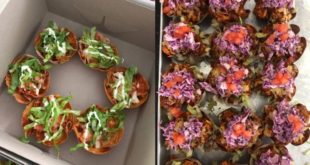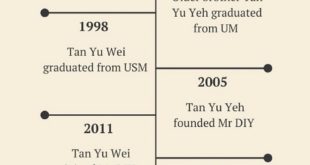The very picture and taste of the iconic traditional chocolate chip cookie Famous Amos has become synonymous with the crunchy delights it peddles.
In fact, when a Malaysian woman claimed to crack the secret Famous Amos recipe earlier this year, the Internet went absolutely wild.
The company remains unfazed however.
“Attempts from bakers to crack the recipe are welcome,” says David Chan, Director of Famous Amos Singapore. “Imitation is the sincerest form of flattery.”
The brand’s name has even been used as political satire to encapsulate the fawning over local politician Jamus Lim during the GE 2020 elections, coining the term “Famous Jamus”.
Singapore Outlets Hold Steady
Famous Amos is so famous (pun intended) that it has sort of faded into a background as one of those brands you half-expect to exist as natural features of local geography like McDonald’s or 7-Eleven.
It’s partially because of its iconic status that Famous Amos is able to weather pandemics like COVID-19 with nary a tremble.

“Famous Amos was certainly not spared when it came to the effects of the Covid-19 pandemic. (It has) halted some of our plans for the moment,” David admits.
Despite the closure of Famous Amos retail outlets during the circuit breaker period, the key source of their revenue is still derived from its storefronts, though performance varies.
“Stores in the central region have not fared as well as those in the suburban areas. The exception would be the Paragon outlet, which has really come to life during the circuit breaker period,” says David.
Famous Amos reportedly saw a 30 per cent revenue decrease in the early days of the virus outbreak, but witnessed a quick recovery matching its 2019 performance in June.
In Singapore alone, Famous Amos Fresh Bake Studios total to 20 outlets islandwide.
“We are being more conservative with our expenses and looking to put a hold on projects that are not urgent. (The silver lining is that) there has been a lot of time to experiment with new products.”
David also emphasises that Famous Amos Singapore is actively expanding and hiring new staff despite the dry-up of jobs during the pandemic period.
A History of Acquisitions: The Downfall Of Wally Amos And The Rise Of Ferrero
The Famous Amos brand serves pastries like cookies, brownies, muffins in the form of packaged goods sold in supermarkets as well as freshly-baked goods sold at outlets.
The brand is owned by the Ferrero Group (in turn the Ferrero International S.A), which owns F&B subsidiaries like the Ferrero Pralines, Nutella, Kinder and Tic Tac.
The conglomerate sells its products in more than 170 countries. In 2019, the group closed the financial year with a turnover of €11.4 billion (S$ 18.1 billion), an increase of 6.2 per cent from the previous year.
Despite its present-day iconic status, Famous Amos started as a tiny cookie store in Los Angeles under the helm of founder Wally Amos in 1975.

A high school dropout, Wally was an ex-talent agent armed with nothing more than a network of celebrity friends and entrepreneurial zeal.
The “cookie man” started the original Famous Amos Cookie Company with US$ 25,000 (S$ 34,5000) loaned from singers Marvin Gaye and Helen Reddy.
By 1982, business was booming and cookie revenue hit US$ 12 million (S$ 16.5 million).
America was charmed by Wally Amos’s rag-to-riches story, but the business began ailing. In 1985, Famous Amos’s revenue dropped to US$ 10 million (S$ 13.8 million).
A series of partnerships with investors who ate Amos’s equity stake in the company led to the purchase of Famous Amos by the Shansby Group in 1988 and Wally was relegated to a figurehead.
From then on, the company changed hands multiple times, eventually falling under the helm of Kellogg, the then-Ferrero Group in 2019 for US$ 1.3 billion (S$ 1.8 billion).
Perhaps the silver lining of the changeover in the Famous Amos ownership has been its successful revival as the iconic cookie brand, with profits to match.
Outlook Remains Positive Despite Pandemic
“Without diving into any numbers, there has been a positive and consistent growth of the brand throughout the last decade,” David comments cryptically.
“Rather than following trends, consistency is key to the success of Famous Amos in Singapore.”

A Channel News Asia report estimated that the takings for Singapore’s local F&B industry was down by 36 per cent in the first quarter of 2020.
Smaller businesses in the F&B industry have been crippled by the pandemic, but larger brands like Famous Amos have not been spared.
Aside from the closure of businesses, disruption of supply lines and fears over transmissions of coronavirus via food packaging, several coronavirus scares have emerged in pastry-making factories.
The Ferrero Group shut down a plant in Brantford, Ontario in April after seven of its workers tested positive for COVID-19.
In March however, Ferrero announced plans to increase investments in China.
Capitalising on the pandemic, the company stated that “(they) expect the epidemic will give rise to new opportunities and business models in China, especially in e-commerce and consumption,” says David.
“What can be said for certain is that the stores will still be baking, and the cookies will continue to be available to customers for the considerable future.”
Featured Image Credit: Mothership / Famous Amos



